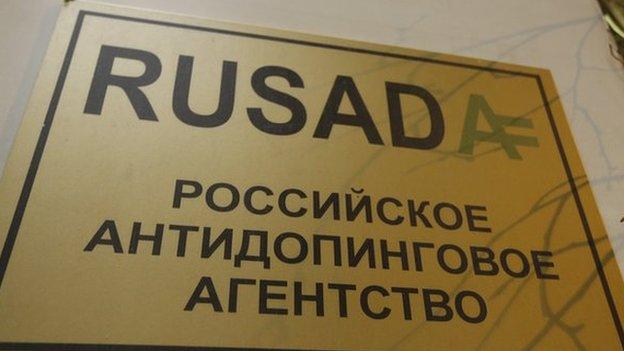Russia doping: Athletes wait in fear of fresh world ban
- Published
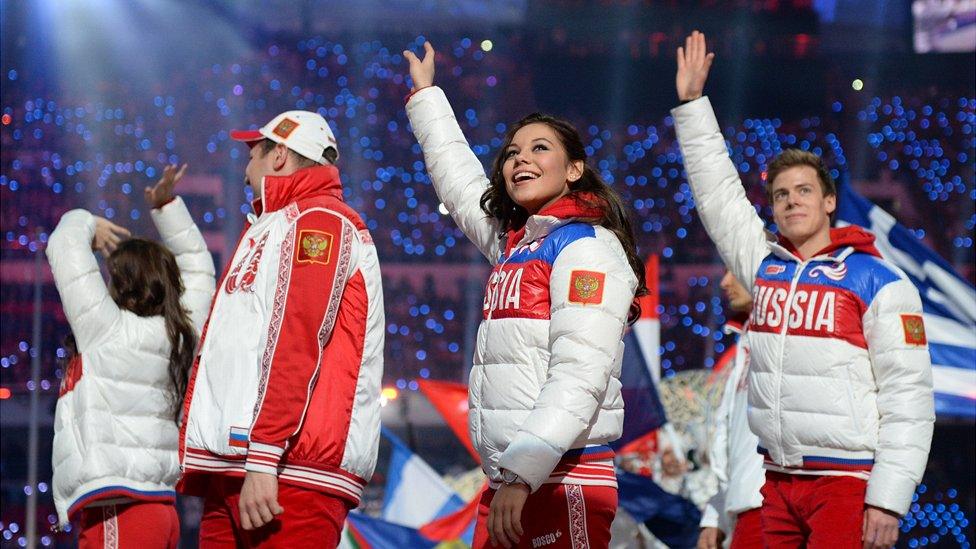
It is likely to be several more years before Russia's Olympians are allowed to compete again under their national flag
Russia has become the master of denial in recent years. From military incursions to hacking to assassinations, the Kremlin has sworn blind it's not involved.
But now the country's athletes are waiting nervously, facing sweeping sanctions for another doping-linked scandal, and senior officials are keeping their silence.
There is one, striking exception.
Yuri Ganus has been warning for months that Russian sport stands on a "cliff-edge" and needs to radically clean up its act. For that, the head of Russia's anti-doping agency, Rusada, says he has received pressure and threats.
"Threats or not, clean sport is my mission," Mr Ganus told the BBC, in offices whose corridors are hung with messages of encouragement for a reformed Rusada from other anti-doping bodies around the world.
Someone complained to President Putin that I wasn't working in the interests of Russia. There's a campaign against me, but I have no right to stay quiet
The Rusada boss is sure the World Anti-Doping Agency (Wada) executive committee will ban Russian athletes from global competition on Monday for four years, including next year's Olympics. He argues that is Russia's own fault.
The story goes back to the 2014 Sochi games, a prestige project for President Vladimir Putin that was meant to project Russian skill, strength and superiority to the world.
The nation's athletes bagged medals and glory across the board. But two years later Russia's reputation was in tatters when a scientist-turned-whistleblower revealed a massive, state-backed doping programme.
Yuliya Stepanova talks to the BBC for the 100 Women season about the cheating, cover-ups and life on the run.
Returning to the sporting fold depended on Moscow proving it had turning a new page. That included handing over a key database of athletes' test results.
But Yuri Ganus confirms that someone altered or deleted "thousands" of entries first.
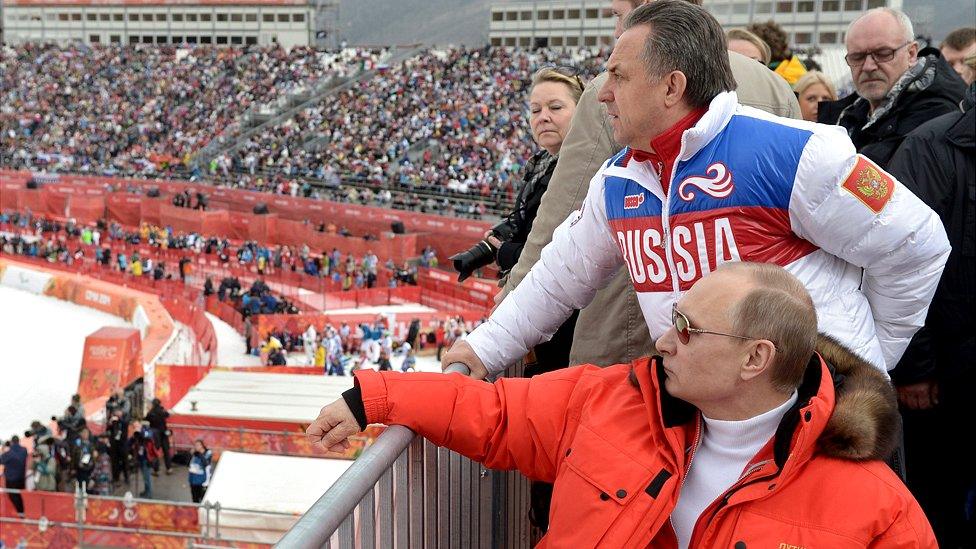
"When I opened the documents [from Wada], I was in real stress. I saw huge changes," he says. "It's a real tragedy for our sport."
The "tragedy" is that this apparently crude attempt at a cover-up will hurt a generation of Russian athletes, barred from the competitions they've spent their lives preparing for.
Anna Sidorova, who's won multiple medals curling for her country, is trying to blot out thoughts of a blanket ban.
"I'm still training and just trying to focus on this, because that an area I can control," she says as other curlers glide by, one knee bent, on the ice behind her.
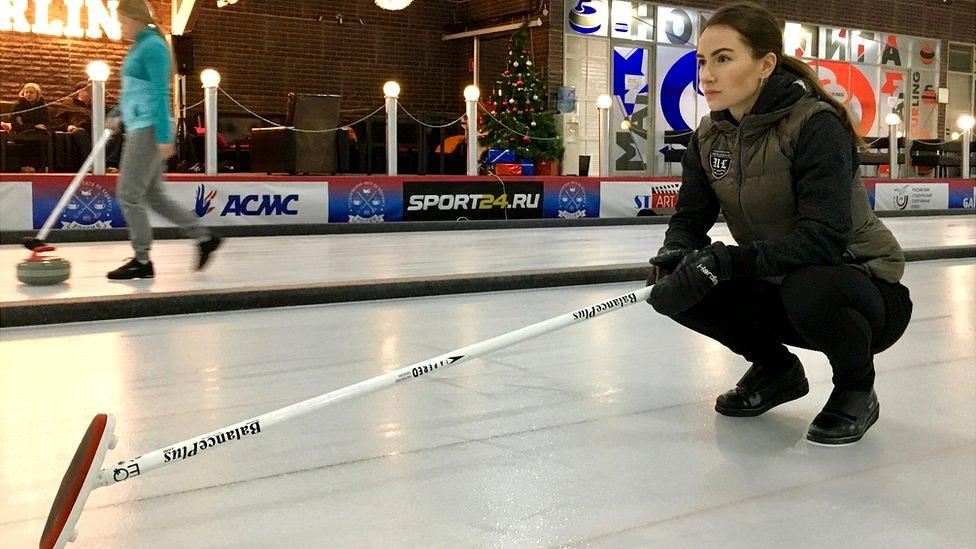
Anna Sidorova is trying not to think of Monday's Wada decision
"I'm not thinking about the other stuff."
Russia's message of denial
So pro-Kremlin TV channels have been working to channel public anger.
One chat show claimed Wada's accusations were invented by Europeans to eliminate a powerful sporting rival. A documentary claimed the original whistleblower was responsible, accessing the electronic database remotely from the US to alter it.
Some sports officials are also apparently in denial.
"Why I should I believe Wada and not our own people here in Russia?" Yelena Vyalbe, the head of the cross-country ski federation, wants to know.
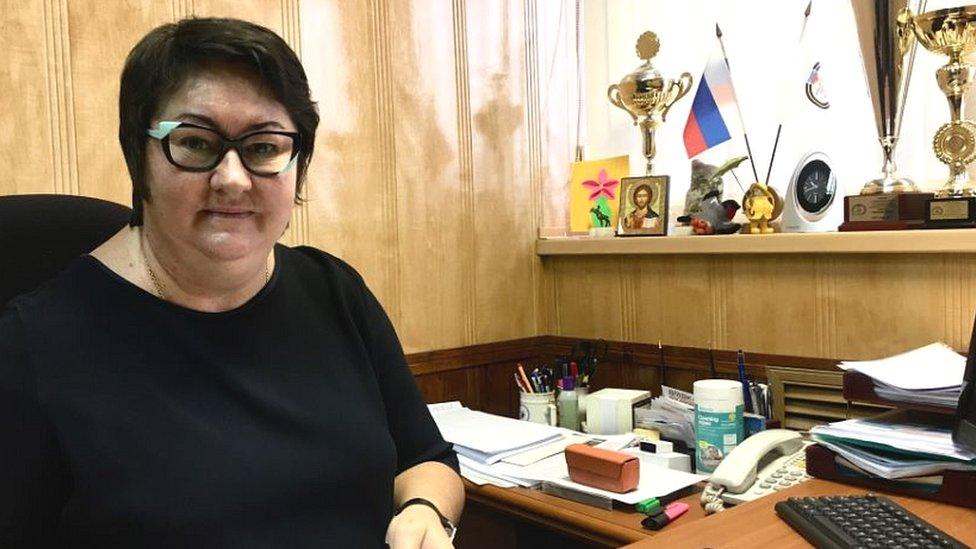
Yelena Vyalbe heads Russian cross-country skiing and won Olympic gold
The former Olympic champion's office is stuffed with trophies and decorated with an image of Vladimir Putin on horseback.
"This anti-Russian hysteria is a multi-part series we've all seen before," she says. "Even [1990s soap-opera] Santa Barbara was more interesting than this show on Russia and doping."
"Do they think we're total idiots?" the skier asks.
Was it all down to stupidity?
That is part of the key question.
Were those who altered the database - and so dug Russia into an even deeper hole - incompetent, imagining they'd never be found out?
Or did they not care about the consequences?
Sergei Medvedev, of Moscow's Higher School of Economics, suspects the former.
"It was crystal clear this would be detected. It was such stupidity, so outrageous! It's like Monty Python stuff," he says, adding that the world had seen "such a strain of idiocy" before, with the 2018 poisoning of former spy Sergei Skripal in the UK.
The two suspects then appeared on state TV with a ridiculously implausible cover story.
Mr Medvedev doesn't see the direct hand of the Kremlin in the latest doping scandal, though. He suggests it's more likely that influential people - possibly former athletes - wanted the data purged.
"I think someone tried to protect their reputation," Yuri Ganus agrees. "Perhaps those who now work in high level authority structures, in sports. I don't know, exactly.
"This is a wrong and bad old school approach. We need to change."
As athletes wait to learn their fate, the minister responsible for handing the files over to Wada remains tight-lipped.
A former champion fencer, Pavel Kolobkov was appointed to head the sports ministry in the post-Sochi era, part of Russia demonstrating its commitment to clean sport.
Russian Sports Minister Pavel Kolobkov avoids questions from the BBC's Sarah Rainsford
But he has not condemned the apparent cover-up, refusing to comment at all until Wada rules on any sanctions.
For Russia, though, all this runs deeper than sport: it's about how the country is run, its priorities - and how it behaves in a crisis. So far, the traditional techniques - deny, accuse, bluster - are all in play.
But the stakes are different.
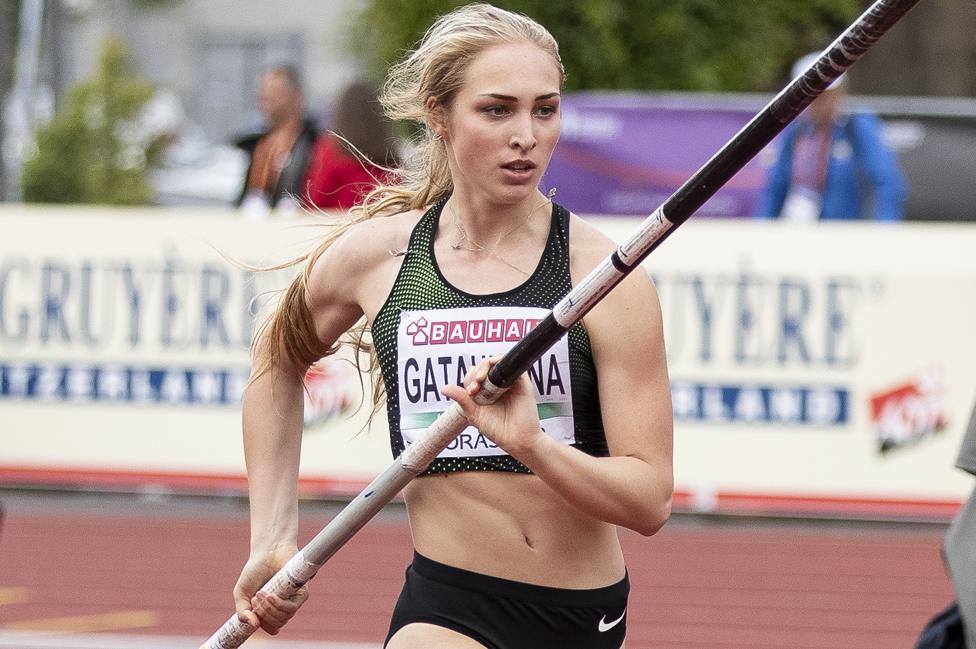
Russians will likely have to carry on competing as neutral athletes if they want to appear on the international stage
Threatened with political isolation by the West, Moscow can shrug that off - pointing to other allies, other options.
In sport, a stage on which Russia loves to strut its stuff, there is no alternative to integration.
That means abiding by global rules.
"In politics, you can play with a poker face, deny the undeniable - but not in sport," Sergei Medvedev argues. "There are clear sanctions - and you can't do sport on your own."
"Russia could hold a 'home' Olympics with Turkmenistan, Belarus and North Korea," he says. "But everyone would laugh at that."
- Attribution
- Published26 November 2019
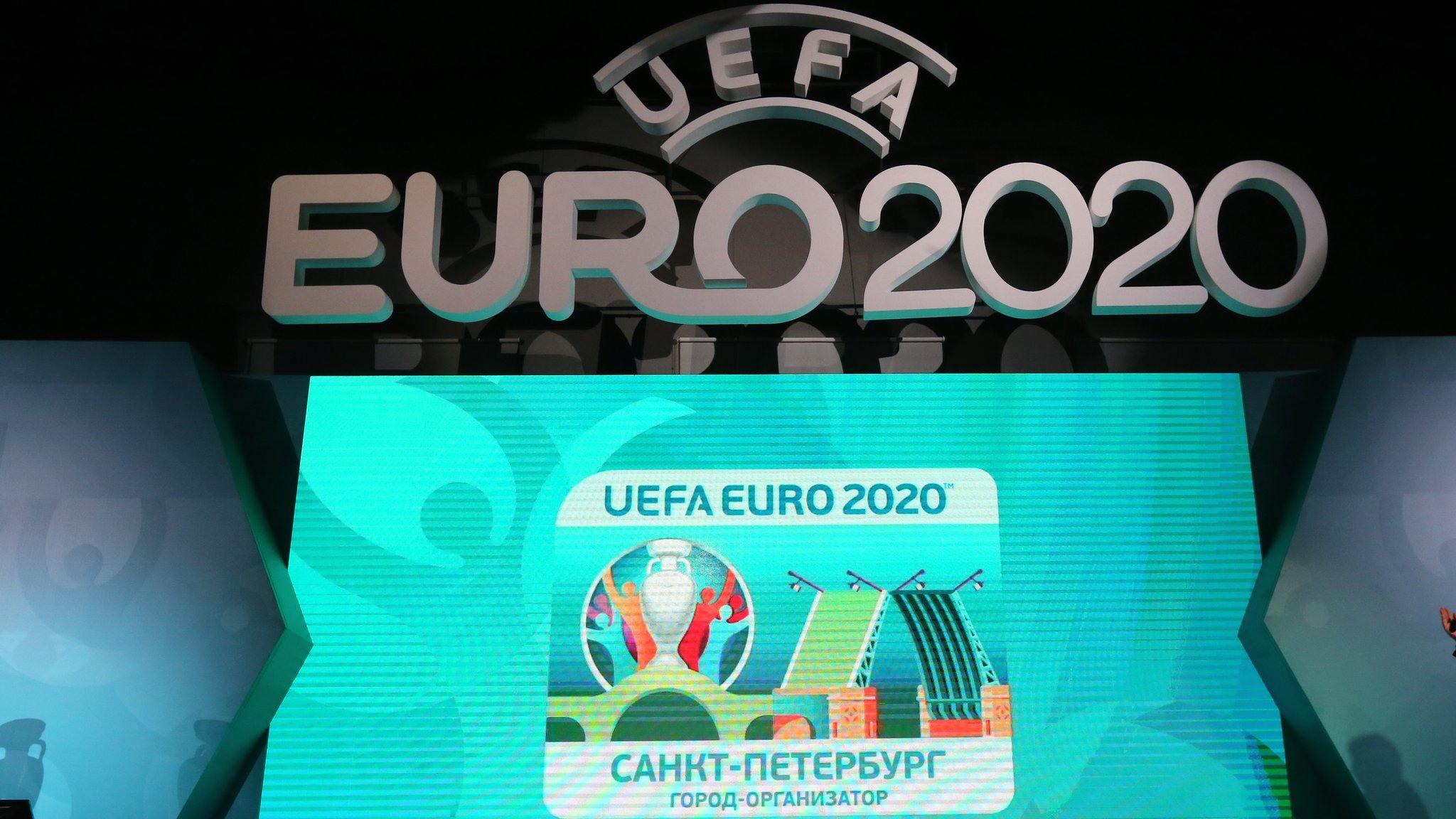
- Attribution
- Published27 November 2019
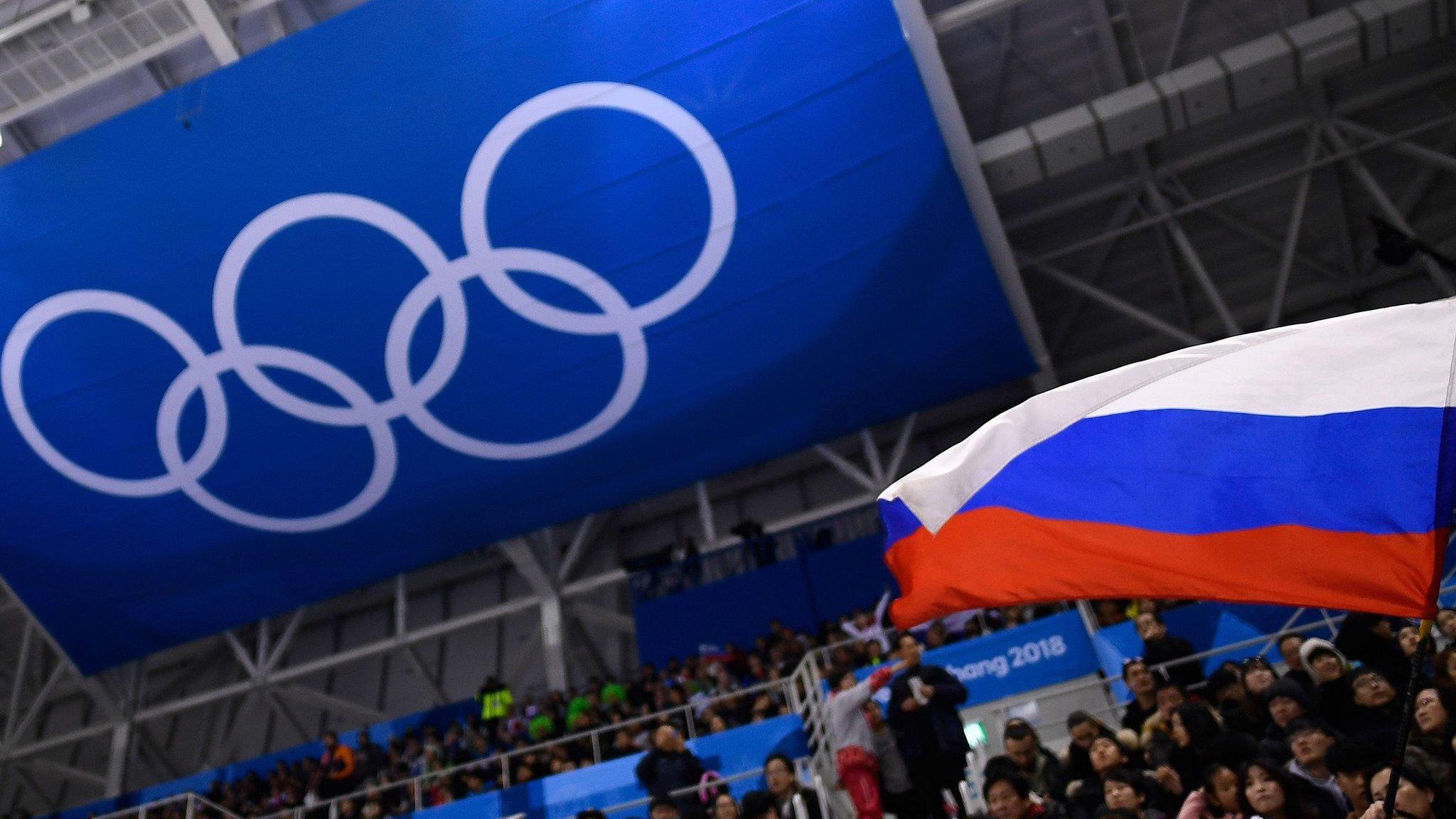
- Attribution
- Published23 September 2019
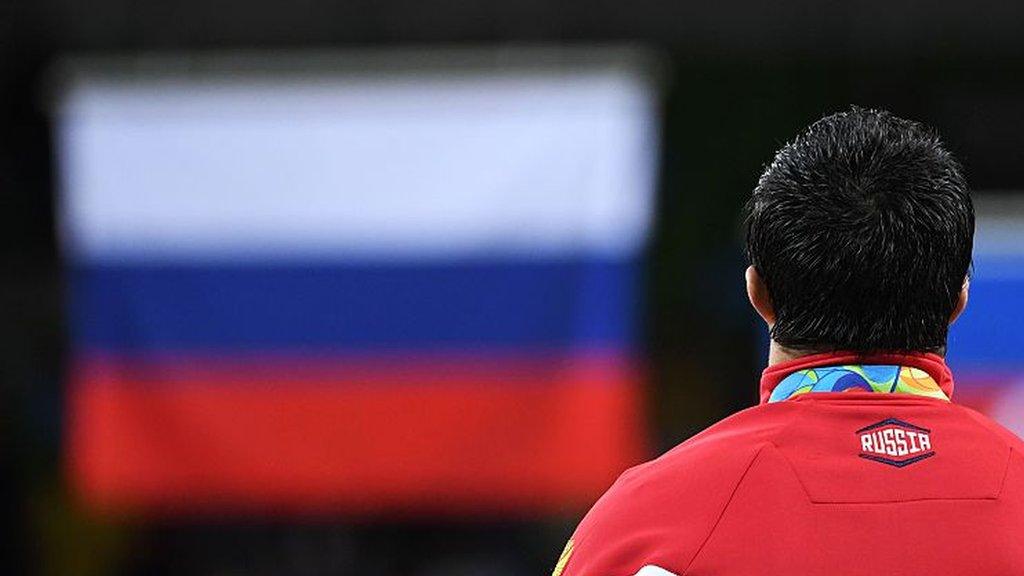
- Attribution
- Published30 April 2019
